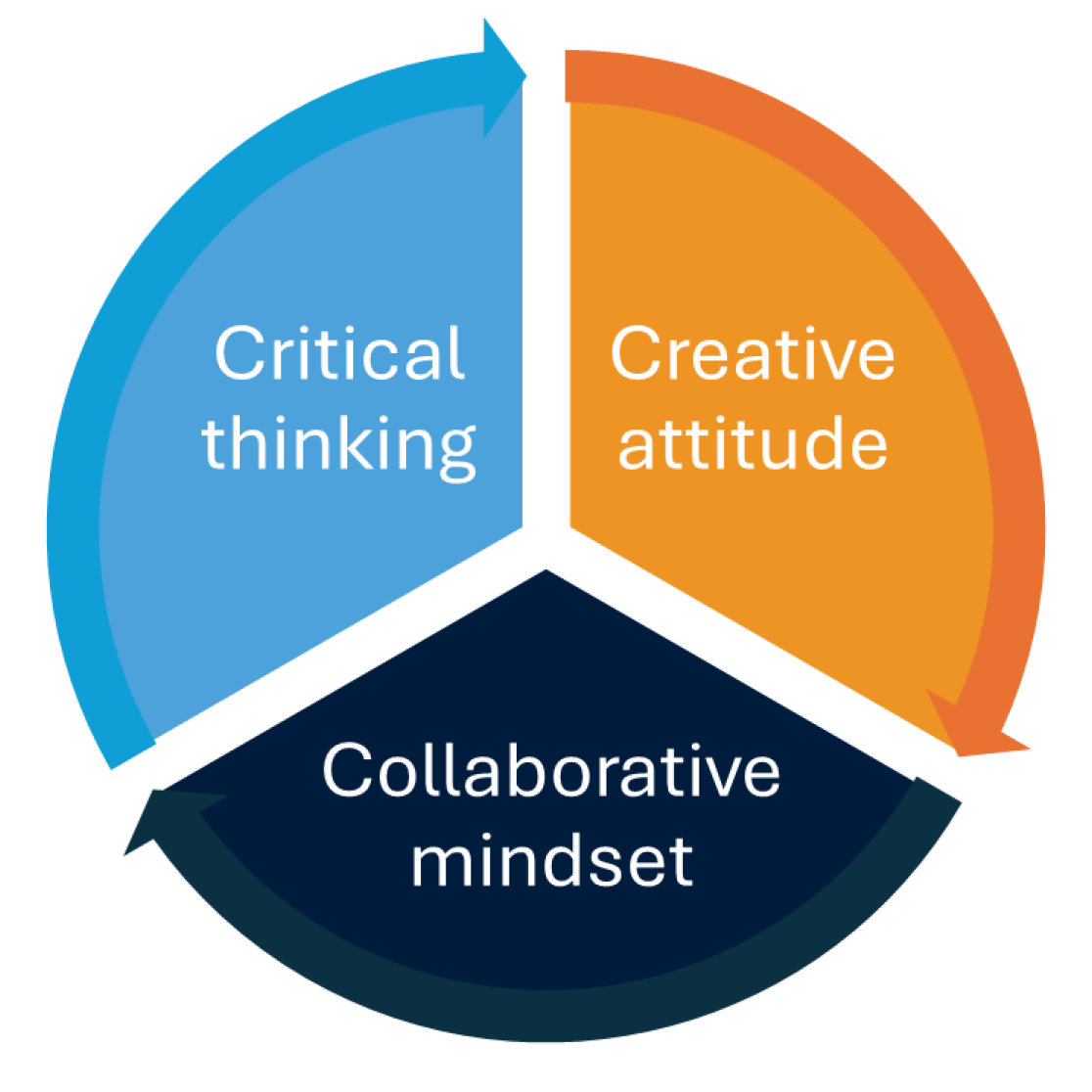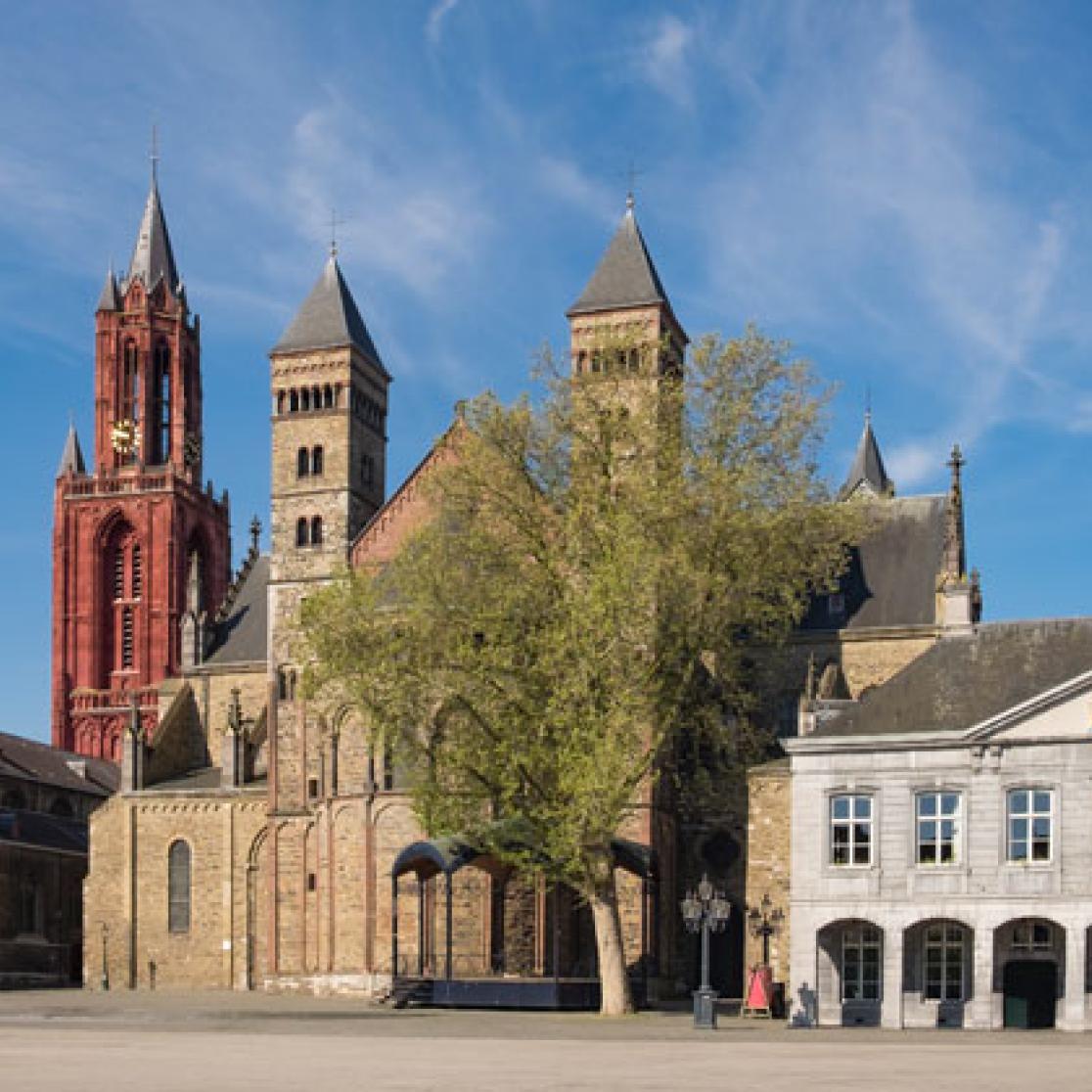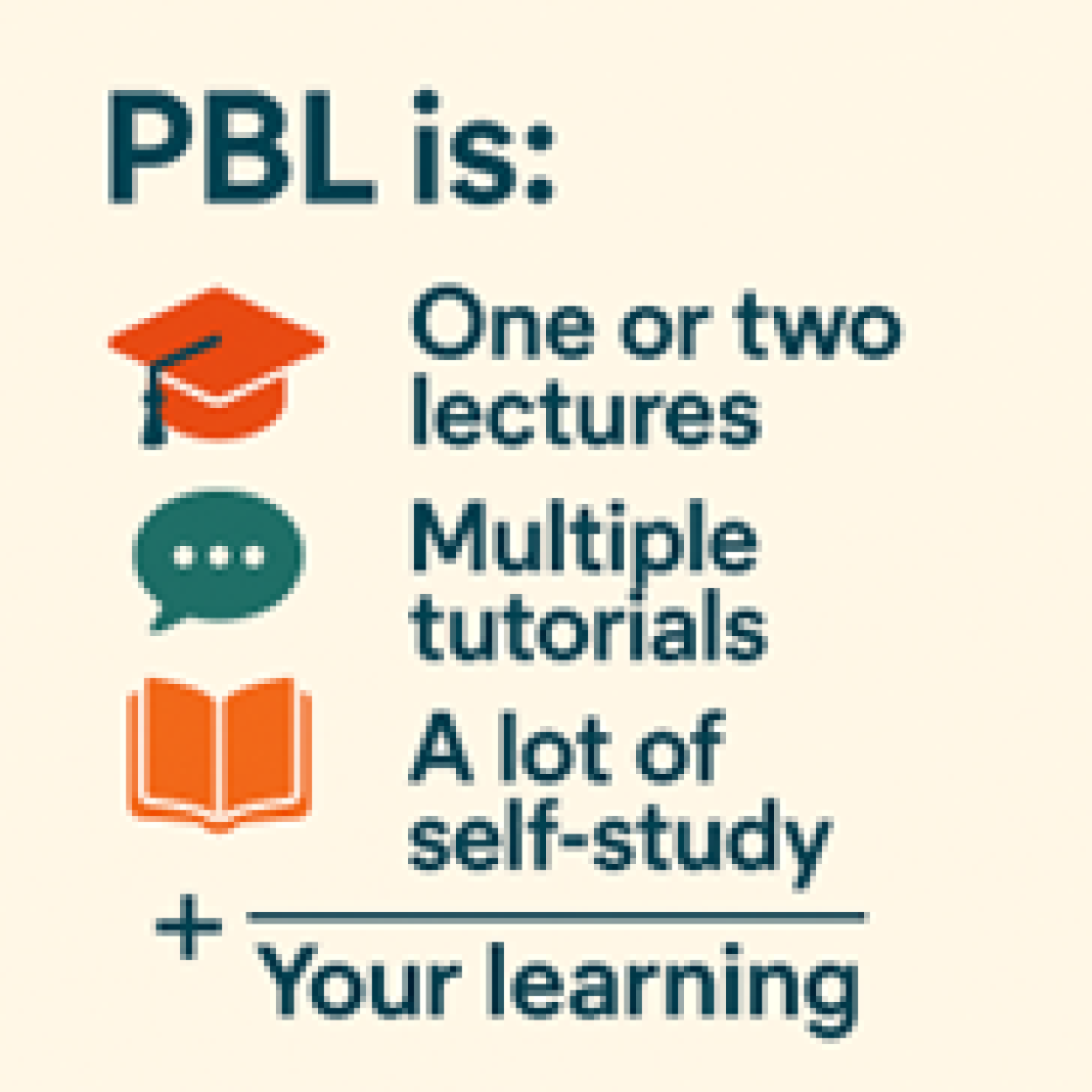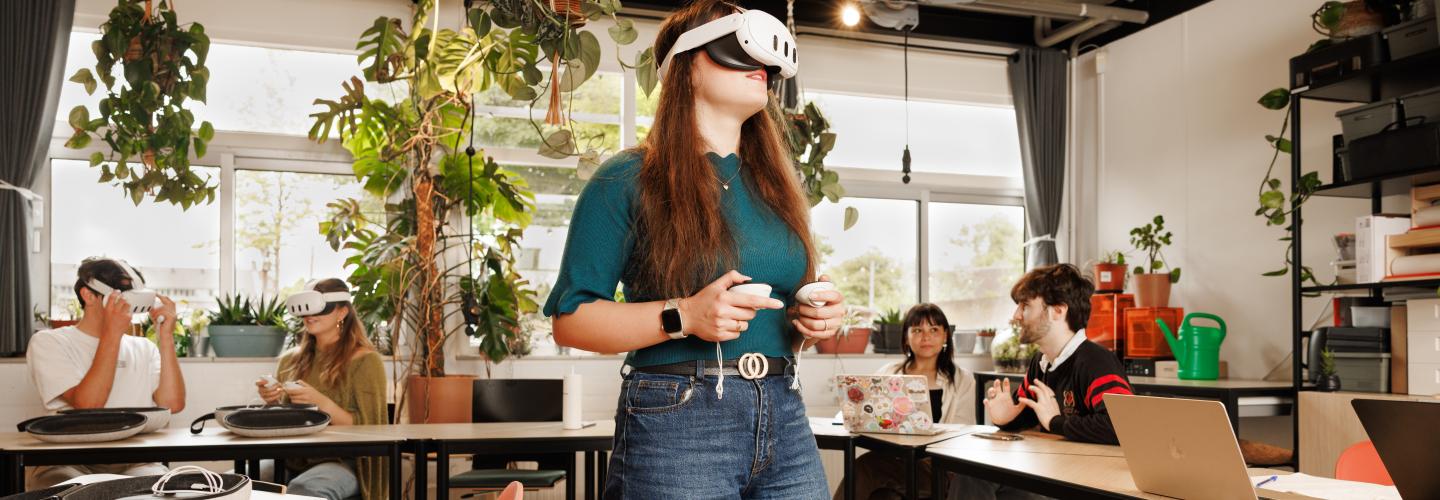Why this programme
We are living in a world where digital technology shapes every aspect of our lives: from social media algorithms influencing beliefs and choices to AI radically transforming industries and jobs. In such a world, the ability to critically understand and responsibly engage with digitalisation is not just key, it will get you ahead of the curve. That’s exactly what you will learn in the Bachelor Digital Society (BA DS) at Maastricht University.
Our programme provides you with a unique set of knowledge, skills, and mindsets to ensure that you understand digital technologies (such as AI and VR) from inside out, that you can create (with) them responsibly and ethically, and that you can build ‘bridges’ between different stakeholders (from engineers to designers to policy makers). In short, the BA DS is all about thinking, doing, and caring so as to create a better digital future for people and planet.

What’s in it for you?
Have a look at these 3 reasons why we and our students think that you should study the BA DS.
Be ready for the jobs of tomorrow!
The BA DS is a future-focused programme; it prepares you for the jobs of tomorrow. In the next decade, digital technology, AI, and automation will transform many jobs worldwide. According to institutions such as The World Economic Forum and the European Commission, over 50 million new roles that require specific digital knowledge and skills will emerge. The BA DS helps you to get ready for a future where digital and algorithmic literacy is as fundamental as reading and writing.
Become a ‘bridge builder’
One of the most valuable skills in today’s and tomorrow’s digital economy is the ability to translate between experts from different domains and disciplines. The BA DS’s interdisciplinary approach prepares you to be a bridge builder—someone who can speak the language of technologists, policymakers, designers, and users alike. By exploring digital phenomena through multiple lenses—sociological, ethical, technical, political, and economic—you will develop a comprehensive understanding impossible to achieve with a single discipline. As BADS graduate, you will confidently facilitate conversations and negotiations across disciplines, while making sure that the technological developments align with human needs and values.
Don’t just prepare for the digital future, CREATE it!
Just as how architecture and urban planning form the basic structures of a city--and thereby determine how we live our lives--, so do digital systems, such as algorithms and AI, control our lives online . We need experts with the knowledge, skills, and mindset to create digital environments where we can live our lives responsibly and sustainably. The BA Digital Society does not train you to become a programmer, hacker, or influencer. But it will get your hands dirty on the basics of coding, cyber security, digital communication, and much more. As such, BA DS graduates will be tomorrow’s digital ‘architects’ that have learned to reimagine what's possible (and needed!) for people and planet and how to digitally and sustainably create it !
In an increasingly digital world, in which every aspect of our lives is affected by digital technologies, we need experts that understand the relationships between digitalisation and social change.
The Digital Society Skillset
Critical thinking
- Understanding and questioning digital systems, societal impacts, and ethical dilemmas.
- Example: Analysing how social media algorithms shape public discourse.
Creative attitude
- Designing innovative solutions, imagining possibilities, and experimenting with technologies.
- Example: Building a prototype for a digital tool or app addressing real-world problems.
Collaborative mindset
- Working across disciplines, perspective taking, understanding complex systems, caring, and integrating perspectives.
- Example: A group project exploring the intersection of AI, privacy, and policy.

International classroom
Located at the heart of Europe and with 60% of all its students from abroad, topics discussed at Maastricht University are truly globally relevant. Within Maastricht University and the Faculty of Arts and Social Sciences, the BA DS is one of the most international programmes with over 90% international students. That means that our classes are truly international. Here, you discuss topics such as freedom of speech, sustainability, surveillance, and AI with friends that come from different corners of the world and who have sometimes very different definitions for and ideas about these themes.
Why Maastricht, why now?
Digital Society at the Faculty of Arts and Social Sciences, at Maastricht University is a truly unique bachelor’s programme in The Netherlands and its neighboring countries. Combine a curriculum that is interdisciplinary, future-focused, and hands-on with the cutting-edge facilities of one of Europe’s most innovative universities and a city famous for its’ vibrant student life and you get a programme that is truly one-of-a-kind.
The BA DS is embedded at Maastricht University, which is known for its signature teaching approach of PBL and its international classrooms.

Problem-Based Learning
Problem-based learning, PBL in short, means small-scale education in which students themselves are in the driving seat of their learning process. “At UM, learning is active. You won’t just sit back and take notes. Your questions and curiosity drive the learning process.” PBL is really a mixture of every week (A) one or two lectures, (B) multiple tutorials in small working groups composed of 10 to 15 students, and (C) a lot of self-study to prepare for tutorials, lectures, and assignments. PBL’s fundamental principles are: Constructive, Contextual, Collaborative, and Self-directed. At the BA DS this means:

- Constructive Education — “Learning by Doing”
Learning at the BA DS is all about being active and engaged. Instead of just memorising facts, we help you to connect new ideas with what you already know. This process does not just make the information stick better, it helps you form well-founded opinions, develop a deeper understanding, and build real knowledge, skills, and attitudes that last. It is not about cramming everything in your head; it is about constructing your understanding from experience and interaction with other students, teachers, and professors.
- Learning in a Relevant Context – “Learning that matters”
Let’s face it—learning feels much more meaningful when it connects to real-world issues. That is why we focus in the BA DS on cases that matter in today’s society. Whether it is exploring controversial topics in science and society (think about surveillance, social media bans, and AI), solving professional challenges, or diving into academic puzzles, you will learn how to approach problems that require both critical thinking and creativity. This way, you are not just absorbing theory—you are learning how to put it into context and, more importantly, into practice.
- Collaborative Learning – “Learning together”
At the BA DS, we believe the best learning happens together. Discussing ideas, debating perspectives, and giving feedback to peers is paramount. It does not only strengthen your own in-depth understanding, it also helps you see things from other viewpoints and perspectives. At Digital Society, learning is a shared responsibility, and collaboration is at the heart of what we do. After all, solving complex digital problems in the real world is rarely a solo endeavour.
- Self-Directed Education – “Learning with ownership”
Here, at the BADS, you are in charge of your own learning journey. From planning your studies to evaluating your progress, you will take the lead. But not to worry—our tutors and lecturers are here to guide and support you in every step of the way. Over time, you will get better at managing your own learning process, giving you the confidence and skills to keep growing long after you graduate. Lifelong learning!
UM and FASoS Campus Tour
Welcome to the FASoS campus tour! In this video, one of our student ambassadors will take you on a journey through our faculty, the inner city, and all the important UM buildings. If you’d like to explore further, we also offer campus tours during our Open Days, Experience Days, and Introduction Days. Enjoy the tour!
